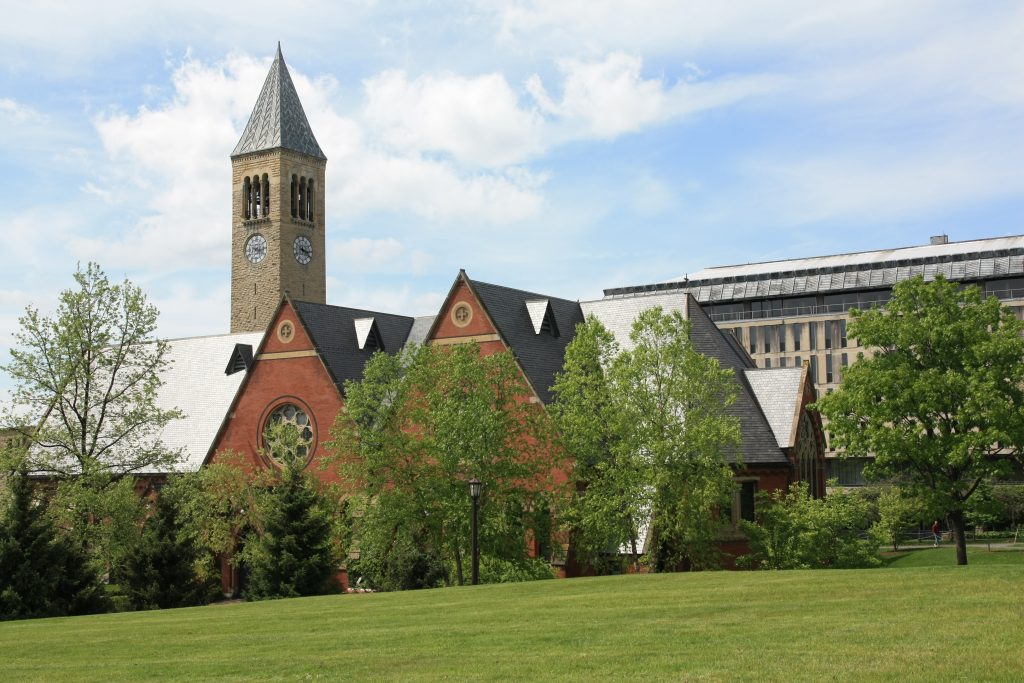Martha Pollack, the president of Cornell University who has faced increasing calls for her resignation over the last year, has announced she is stepping down at the end of the school year after seven years at the helm of the Ivy League institution. He last day is June 30.
Pollack, in an email to the campus community sent Thursday afternoon, stated she had considered the move since last fall. She has described her decision as a retirement, although some observers argue this is effectively a resignation.
The embattled leader has been the target of scorching criticism in recent years from both alumni and major donors who argued she has allowed diversity, equity and inclusion dogma to infiltrate the curricula, has not done enough to stop rampant antisemitism from festering on campus, and quashed intellectual diversity even while declaring Cornell a safe haven for free speech.
“I understand that there will be lots of speculation about my decision, so let me be as clear as I can: This decision is mine and mine alone,” Pollack wrote. “After seven fruitful and gratifying years as Cornell’s president — and after a career in research and academia spanning five decades — I’m ready for a new chapter in my life.”
The decision comes after unceasing activism by the Cornell Free Speech Alliance, which has documented the school leader’s missteps in recent years and developed a listserv of tens of thousands of Cornell alumni, sending out its criticisms in great detail over the last three years.
Even though Pollack last summer declared the 2023-24 school year as the year of “free speech,” the Cornell Steering Committee for Free Expression was stacked with DEI scholars.
The alliance published a 100-page report last August that called for sweeping policy changes on campus that included adding free speech training to freshman orientation, implementing the famous free speech Chicago Principles, eliminating DEI course requirements, removing its anonymous bias reporting system, and providing students robust due process.
Even in the face of this report, Cornell forged ahead with the development of a Center for Racial Justice and Equitable Futures.
Cornell is also among several universities under investigation by the feds for claims of antisemitism and Islamophobia on campus. And several years ago, Cornell infamously removed a bust of President Abraham Lincoln before public pressure forced administrators to reinstall it on campus.
In a statement provided to The College Fix on Thursday, Carl Neuss, co-founder of the alliance, “thanked” Pollack for her decision:
This decision should allow Cornell University to now address the growing challenges to educational quality that have greatly impeded Cornell in recent years. By resigning, Ms. Pollack has done what is best for the university. Runaway DEI policies implemented under the current administration have degraded the educational environment and spurred the shameful antisemitic uprisings now dominating campus life. Major policy reform can now begin at Cornell. Such reforms are sorely needed. CFSA and thousands of Cornell alumni thank Ms. Pollack for her past service. The next step for Cornell is to appoint a new president who will point a path for educational restoration and reform at Cornell.
As The College Fix reported in January, one of Cornell largest donors, Jon Lindseth, declared he will no longer donate money to his alma mater while its embrace of diversity, equity and inclusion continued under Pollack in a widely circulated memo that called on her to resign.
“I am alarmed by the diminished quality of education offered lately by my alma mater because of its disastrous involvement with DEI policies that have infiltrated every part of the university,” Lindseth wrote. “…I can no longer make general contributions until the university reformulates its approach to education by replacing DEI groupthink with the original noble intent of Cornell.”
At Cornell, Democrat professors outnumber Republican ones 98 to 1, according to a 2022 College Fix analysis of professors’ political affiliations across six humanities departments.
In the wake of Lindseth’s letter, Cornell’s Board of Trustees voted unanimously to support Pollack despite the growing concerns.
“I greatly appreciate the continued support of our Board of Trustees, and of the many faculty, students, staff, and alumni who have spoken with and written to me with words of encouragement and support throughout my time as president, including the past academic year,” Pollack wrote in her announcement.
Cornell law Professor William Jacobson, a high-profile critic of his employer who was publicly censured in 2020 by his dean for his criticism of the Black Lives Matter movement, said in a statement Thursday that Pollack “was the architect of Cornell’s disastrous race-focused DEI initiative that balkanized the campus, and inevitably led to targeting of Jewish and pro-Israel students.”
“While I wish her well in her personal life, it is time for the Cornell Trustees to turn the ship around, to eliminate DEI programming as is taking place elsewhere, and to refocus the campus on the inherent dignity of each individual without regard to group-identity.”
Originally published by College Fix. Republished with permission.
For more great content from School Reform News.
For more from The Heartland Institute.
